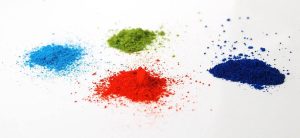Solvent-based inks and water-based inks are two different types of inks with several key differences in composition, properties, and applications.
Composition:
Solvent-based inks contain a high amount of organic solvents. These solvents help dissolve the pigments and resins in the ink and facilitate its application. Common solvents used in solvent-based inks include toluene, xylene, and acetone.
Water-based inks are primarily composed of water. They also contain pigments, binders, and additives, but the water content is much higher compared to solvent-based inks.
Drying Time:
Solvent-based inks dry relatively quickly due to the rapid evaporation of the solvents. This makes them suitable for high-speed printing processes and applications that require fast drying.
Water-based inks, on the other hand, have a longer drying time. The water in the ink needs to evaporate slowly, which can be a disadvantage in certain applications. Modern water-based inks often contain additives that can speed up the drying process.
Odor:
Solvent-based inks have a strong odor due to the organic solvents they contain. This can be a problem in enclosed spaces or areas where people are sensitive to odors.
Water-based inks are virtually odorless, making them more comfortable to use and suitable for environments where odor is a major factor.
Environmental Impact:
Solvent-based inks have a significant impact on the environment. The solvents used in these inks are volatile organic compounds (VOCs) that contribute to air pollution and have negative effects on human health. Additionally, solvent-based inks are often difficult to properly dispose of.
Water-based inks are friendlier to the environment. They are low in VOCs and easier to dispose of. They are also biodegradable in many cases, which reduces the impact on the environment.
Adhesion and Durability:
Solvent-based inks generally offer excellent adhesion and durability. They adhere well to a variety of surfaces and are resistant to fading, scratching, and abrasion. This makes them suitable for applications where the printed product is exposed to harsh conditions.
Water-based inks also offer good adhesion and durability, but in some cases, they may not be as strong as solvent-based inks. Advances in technology have led to the development of water-based inks with improved properties that rival those of solvent-based inks in terms of performance.
Applications:
Solvent-based inks are often used in outdoor signage, vehicle wraps, and industrial printing applications where durability and weather resistance are critical.
Water-based inks are widely used in packaging, labeling, and commercial printing, as well as art and craft applications where environmental and safety considerations are important.
Solvent-based inks and water-based inks have different properties that make them suitable for different applications. The choice between the two depends on factors such as the printing process, the surface to be printed, environmental considerations, and the desired properties of the printed product.



